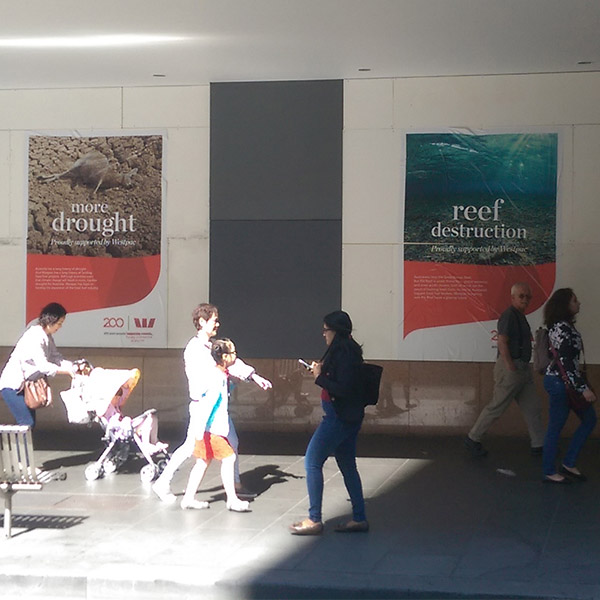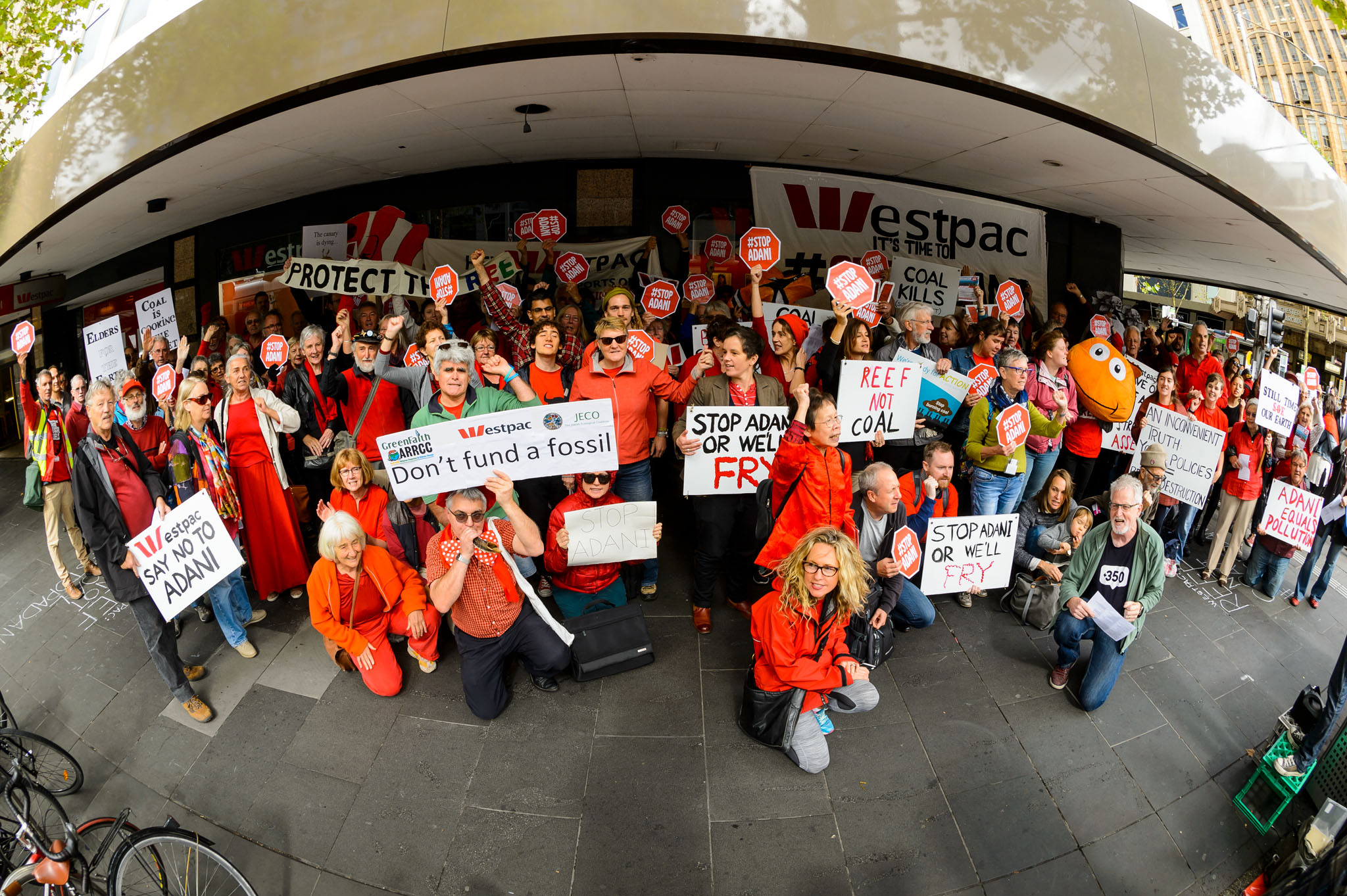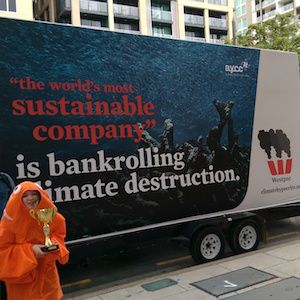28 April 2017
After years of pressure from customers, shareholders, environmental groups and the broader community, Westpac has just become the 19th bank around the world to either distance themselves from Galilee Basin coal export projects, or bring in a policy that prohibits lending to new coal mines like Adani’s.
Westpac’s climate change policy update, released today, says “for new thermal coal proposals we will limit lending to any new thermal coal mines or projects (including those of existing customers) to only existing coal producing basins and where the calorific value for that mine ranks in at least the top 15% globally”.
This rules Adani’s plans out on two counts, as the Galilee Basin does not currently produce coal, and the coal quality is lower than Westpac’s new threshold.
The bank also promises to: reduce the emissions intensity of its power generation portfolio; only lend to new coal power stations that reduce the overall emissions intensity of the energy grid they will operate in; and not lend to existing coal power stations for expansion or lifetime extension purposes, unless there is a reduction in emissions intensity.
On the renewable energy and energy efficiency side of things, Westpac has committed to increase lending to climate change solutions to $10 billion by 2020 and $25 billion by 2030.
While Westpac’s climate policy update is a big win for the campaign to stop Adani, it leaves a long way to go to get the bank off fossil fuels altogether.
Years of community action
Westpac’s policy update came after years of campaigning and community pressure, culminating in a concerted effort in 2017 to ensure the bank would not finance Adani’s dirty Galilee basin coal plans.
While this announcement certainly isn’t the end of the campaign to get Westpac to ditch fossil fuels completely, it’s an important step and definitely worth celebrating.
So congratulations to everyone who has taken part in this campaign so far – whether you’ve turned up to an action, used your power as a customer or shareholder to pressure the bank, or contributed to deafening calls for Westpac to “Stop Adani.” YOU HELPED MAKE THIS HAPPEN!
Take a moment to celebrate not just being part of a wonderful movement that is working to change the behaviour of the banks and stop dirty coal projects like Adani’s, but also your own contribution to today’s result.



Hear Market Forces’ Executive Director Julien Vincent speaking about the Westpac policy update on ABC’s The World Today
Market Forces responds
Market Forces Executive Director Julien Vincent said of the move: “With this policy change, Westpac has raised the bar on climate change for the other big banks, becoming the first major bank to put restrictions in for new thermal coal mines.”
“The fact that an existing lender to Adani has now ruled out financing the proposed Carmichael mine makes this announcement even more significant.
“We want to acknowledge the hard work from the thousands of concerned customers, shareholders and community members over the last few years that have helped delivered this result, and congratulate those within Westpac that advocated hard for stronger action on climate change.”
“With such a toxic political debate on coal at the moment, and a government falling over themselves to throw money at this dirty fuel, statements like these send a powerful message that coal is rapidly going out of fashion in the business and finance community.”
Westpac’s policy change does appear to make it the strongest among the major Australian banks on coal lending restrictions, but Market Forces had hoped to see the bank go further.
“Each month we see another bank putting in a clear, blanket restriction on finance for new thermal coal mines and power stations, so while Westpac has clearly stepped ahead of the other Australian banks, it has a way to go before it has caught up to its international counterparts.
“We call on all of Australia’s big four banks to align their policies and lending activities with the goal of holding global warming to less than two degrees. The first step to that goal is ruling out finance for any project that expands the fossil fuel industry, and being fossil fuel free by 2030.
